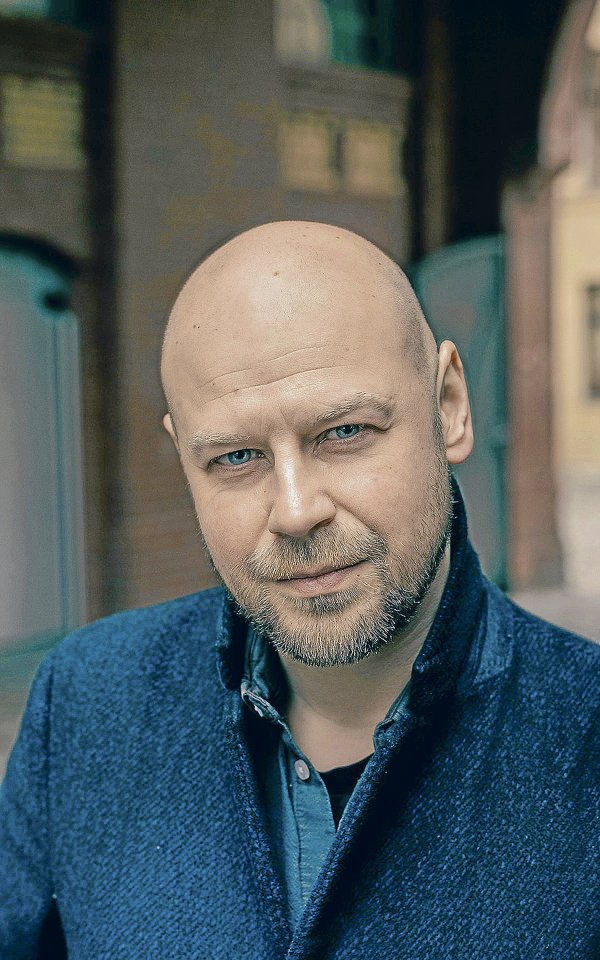As if nothing had happened. And yet it happened – in Hanau, the city of the fairy tale brothers Grimm.
Photo: Marcin Wierzchowski
On the evening of February 19, 2020, a right -wing extremist shot nine young people with a history of migration in Hanau city center. How do you remember this tragedy?
On the 19th I was sitting with my friend Mario on the couch in his flat share. At some point the first news came that several people were shot in the city center of Hanau. I said to him: that was a Nazi. I felt like it. Because the mood in the country, which was positive after 2015, was totally overturned at the time. The focus was on shisha bars as supposedly criminal places. Where do you strike? Where many people live with migration history. In the evening it was still said: that may have been an act in the criminal milieu. In the morning it was clear that it was a racist attack. Hanau is around the corner from where I live. That’s why I went there – first without a camera. I wanted to see: what’s going on? Can you help? During the day I decided to document it.
How did you approach those affected?
In the first week there were solidarity campaigns in the city. A nationwide initiative was founded that built a stage to let those affected speak. At that time it was said that it was a “xenophobic” attack. But it was said by the stage: the victims were not a “stranger”. The framing has changed. After a week the funerals and funeral celebrations. I was there and filmed – but always from a distance. When the coffin was left underground, the journalists have always approached. But I thought you wanted to spend this moment in private. I imagined the grieving and asked if I could film. You explicitly invited me. At some point I had the nickname “the pole with the camera”.
Interview

Marcin WierzchowskiBorn in Warsaw in 1984, was still a baby when his parents moved to the Federal Republic with him. He started studying philosophy in Frankfurt am Main and then moved to the Mainz University of Art to study free visual art with a focus on film with Harald Schleicher. Today he lives and works in Frankfurt am Main and Warsaw. His first film, the 47-minute documentary “Hanau-A Night and its consequences” was awarded the Grimme Prize in 2022 and forms the basis for his feature film “The German People” (2025), which celebrated its premiere at this year’s Berlinale.
They consistently tell the film from the perspective of those affected. State bodies have their say on official occasions, but they have not asked any interviews. When did you choose this approach?
It was not my interest to give a classification. It is not a journalistic film, but one who records the perspective of the relatives without comment. The representatives of the authorities have lied how it turned out again and again. Then what brings me their statement? It quickly became clear to me: I am interested in what those affected think and feel and say.
They accompanied the relatives on their way for four years. How do your protagonists deal with grief, shock and anger?
They have decided to be loud and fight – not only in terms of memory, but also in terms of education. At the same time, of course, there are different people with different characters and bypasses. Piter Minemann has converted to Islam three days after the attack because a ball narrowly missed him. Niculescu Păun makes his son a hero who he was that night too. The strategies of the bereaved are very diverse. She unites that they deal aggressively with what they have experienced and that they do not want to be a victim.
Her first, shorter documentary “Hanau-One Night and her episodes” was awarded the Grimme Prize in 2022. Was they already clear that they would continue to work on the subject?
“The German people” is the real film that I wanted to make from the start. The long format takes more time and can tell differently. The first film was offered to me and I found it right to give the relatives a voice early and not to wait as long. At that time it was about an inventory. Later, everything was confirmed in the committee of inquiry that the relatives knew after two months because they had the right nose from the start, for example in terms of the closed emergency exit in the bar and the problems with the emergency call.
Five years after the crime, migration – also in view of the attacks in Munich, Magdeburg and Aschaffenburg – is a controversial election campaign topic. How has the situation in Germany changed since Hanau?
I would say: the fights of the relatives and their supporters have brought something – namely that no longer talked about the perpetrators, but about the victims. There have been anti -racist battles in Germany for a long time, for example after Mölln in the early 90s. But with Hanau it came to the public differently. The relatives were listed more. There was documentaries about those affected on public service television. One thought: something is going on, something happens. And now suddenly we are in amnesia – like the goldfish in the glass. Everything is forgotten. One talks about migrants as if there had been no recruitment agreements 70 years ago, as if many people hadn’t had a long story in Germany. This is really amazing. What is the name of Bertolt Brecht about fascism? “The lap is still fertile from which the crawling.” It can go very quickly. We have a really dangerous situation right now. We should keep our eyes open and do everything that does not happen again. It is up to all of us.
Nd.Diewoche – Our weekly newsletter

With our weekly newsletter . We’re Doing Look at the most important topics of the week and read them Highlights our Saturday edition on Friday. Get the free subscription here.
Did you talk to the relatives in Hanau about the current political debates?
Yes, of course you feel that. Her children, their relatives and their loved ones were murdered for racist motifs. Many have not perceived this racism so directly. They were part of this society or at least felt that way. Then they were told: you are not one of them. You will never belong. And now they realize that they are not the only ones who are doing, but the political climate also excludes many others. They are all very affected by the latest attacks. They are very solidarity with families and relatives and suffer. You say: We want anyone to suffer again. No matter from what motives: the suffering for families is the same.
In your film and also in current debates, the question is: Who is part of it? This struggle for recognition – do you know it from your own experience?
When we came to Germany at the time, the poles were the asparagus cups. My mother was a cleaning lady, although she had a good job as an office manager in Poland. Poles were considered alcoholics or thiefs that “polacken”. At that time there was this attitude towards people from Eastern Europe. I often heard the joke: where is my wallet? I can laugh about it, but the devaluation was already felt. So I experienced racism, not about my skin color.
Almost exactly five years after the attack, on February 18, 2025, her documentary celebrated its premiere at the Berlinale. What does that mean for the bereaved?
The film approaches the effects of the attack and the loss of loved ones. But it is also about the time after how those affected have been treated, which trauma have been triggered and reinforced. It’s about making this somehow understandable. The bereaved say that the film managed to make it visible. We don’t know what happens in your four walls when the camera is not there. But we suspect how bad it has to be. The film can make a little noticeable what it triggers when someone decides: you are not worth anything. I delete you. That is why many Hanauer come to the Berlinale.
What are you working on at the moment?
I am currently writing fictional fabrics. Previously, I shot in Brazil for five years, in Rio de Janeiro, during the Bolsonaro era. The film is turned off, it will be called “the city of the prophets”. It is about the rise of Bolsonaros and the right and religious forces in the country. Hopefully I will have completed the film completely next year.
“The German people”, Germany 2025. Direction: Marcin Wierzchowski. 132 min.
February 20, 9:30 p.m., Colosseum 1
judi bola online judi bola online link sbobet judi bola online
